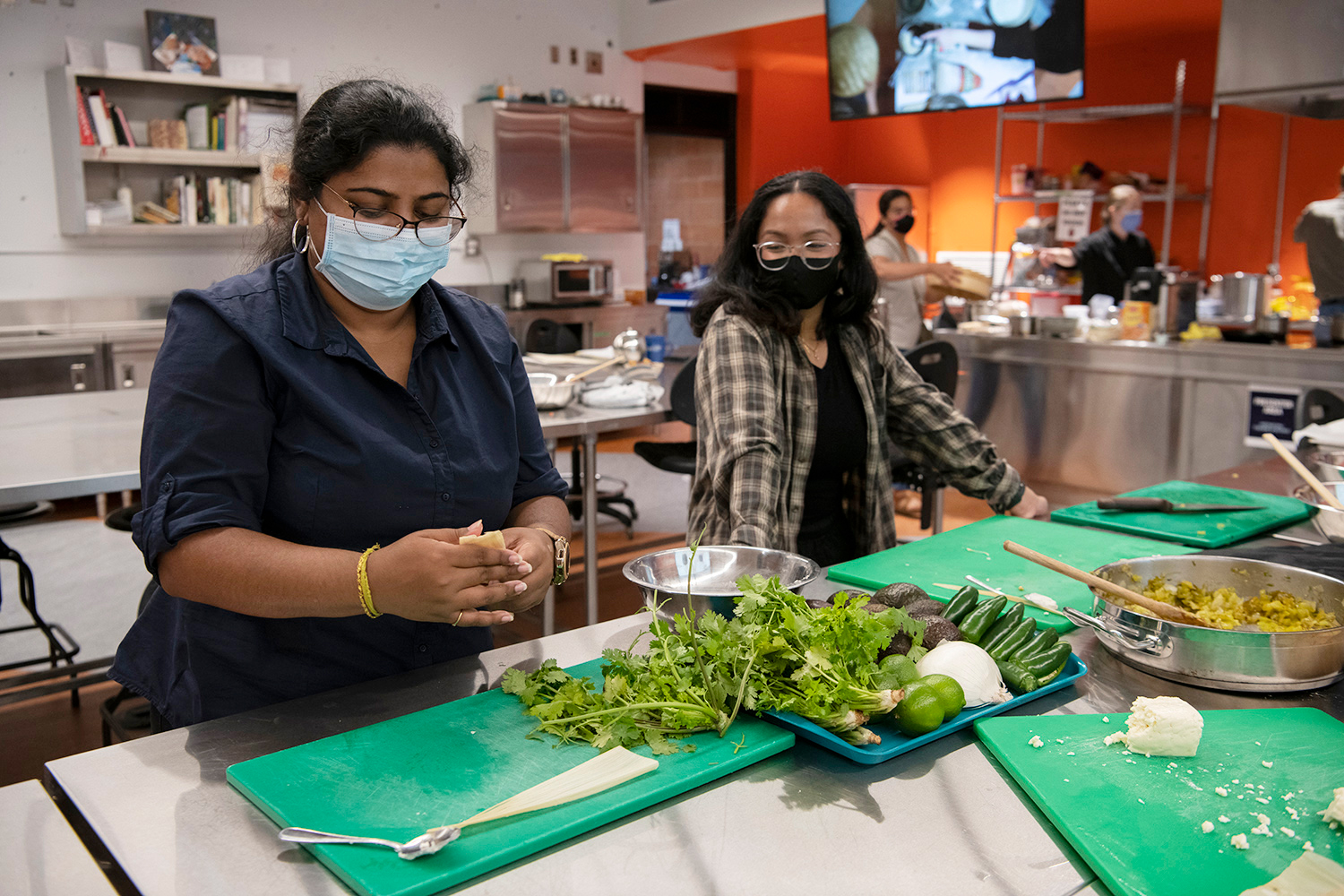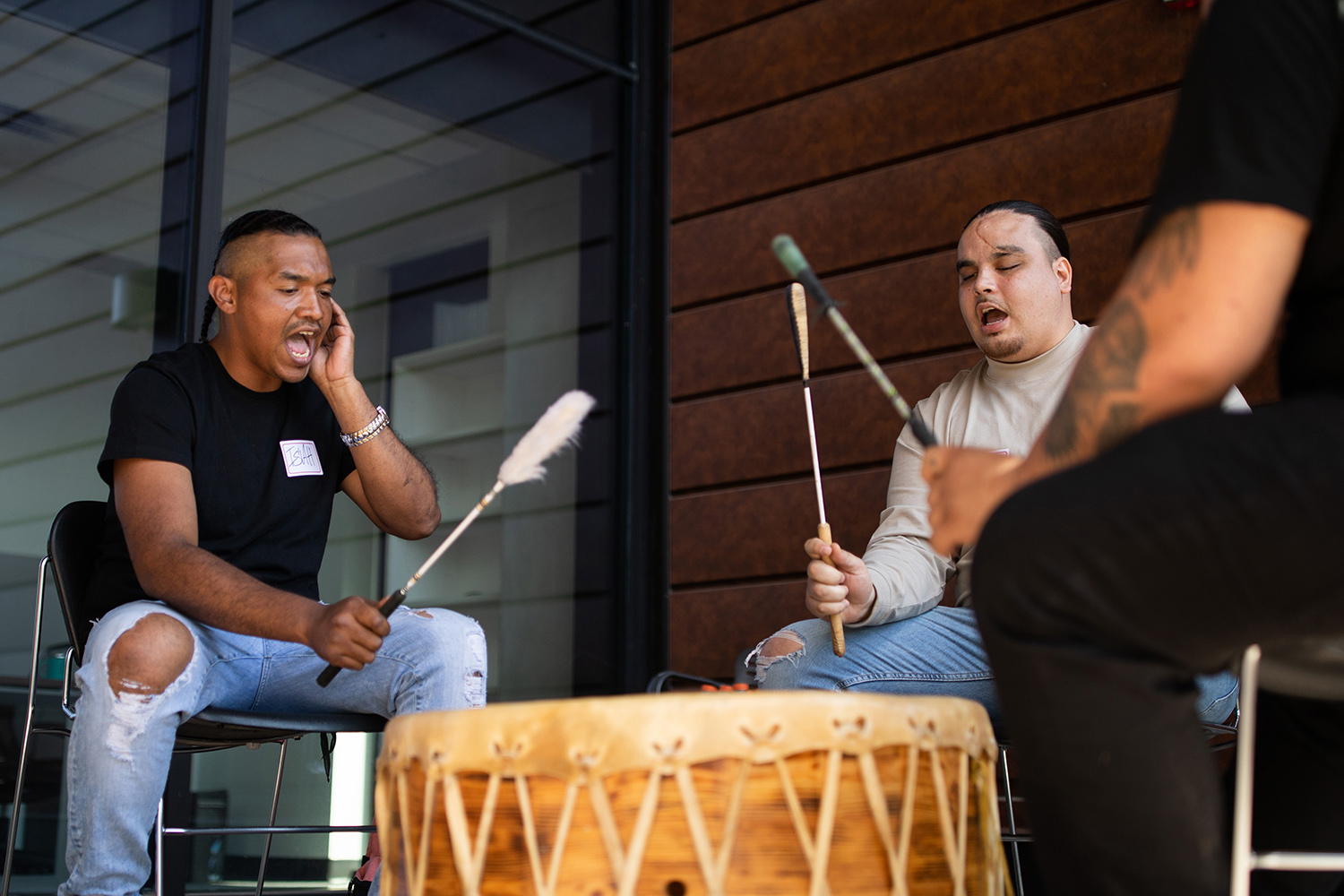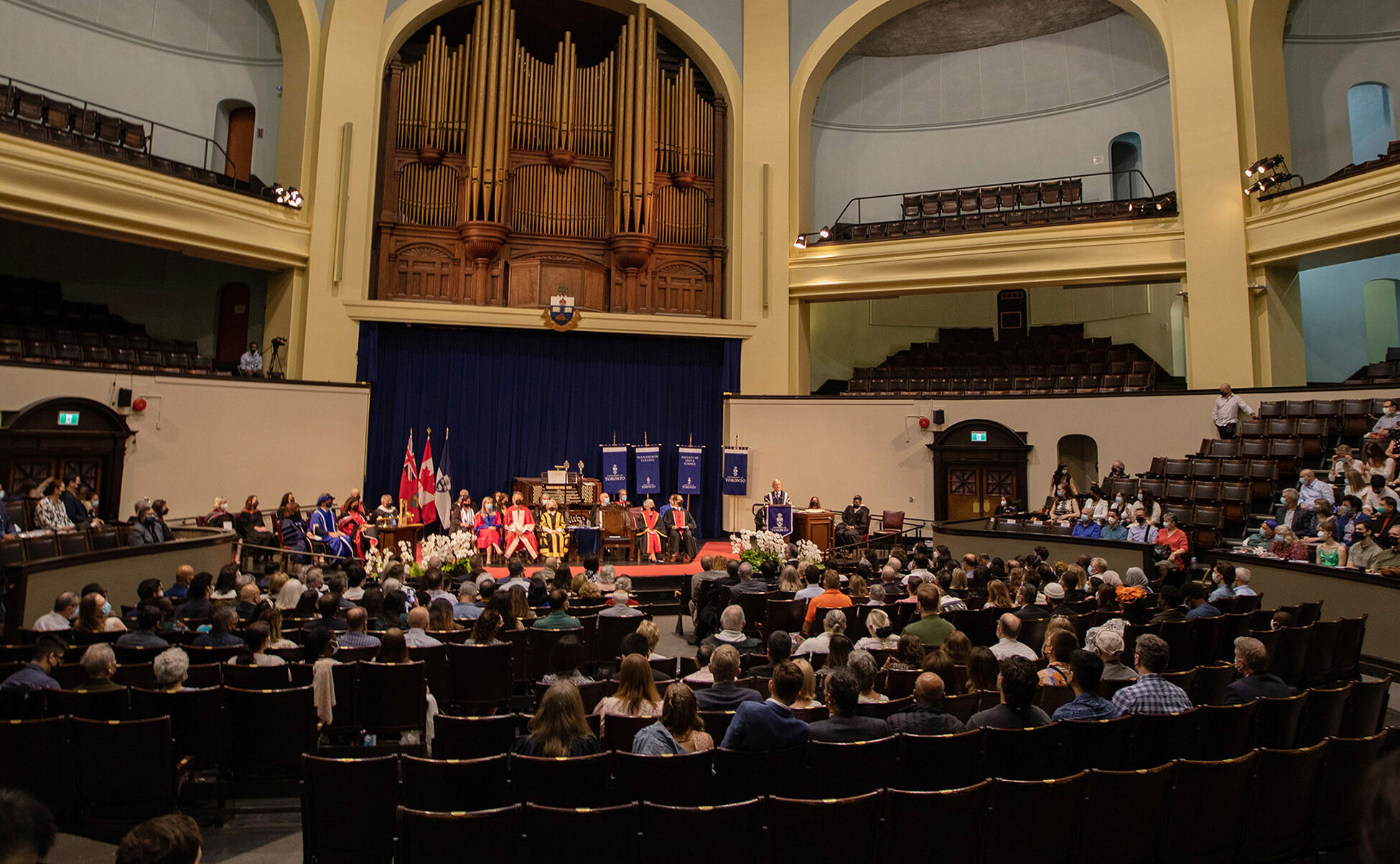Good News
Date: June 21
Time: 10:28 a.m.
Campus: St. George
Graduating students made a much-anticipated return to Convocation Hall as in-person graduation ceremonies resumed for the first time in two years. With friends and family looking on, more than 11,000 students took part in 32 different convocations in June.
During the ceremony pictured here, honorary graduate Jim Cuddy, a member of the band Blue Rodeo and an acclaimed solo artist, played “Good News,” a song he wrote about getting through the pandemic that was inspired by the Black Lives Matter protests. He says the song is about human resilience in the face of adversity.
Before picking up his guitar, Cuddy told his fellow graduates that he twice deferred going to the University of Windsor so he could pursue his musical ambitions. “Find something you’re passionate about,” he urged them, “even if it’s not how you make your living.”
Convocation’s cherished traditions were on full display this year, with a few altered elements. In keeping with public health guidelines, everyone wore masks. And instead of shaking hands with a member of the platform party as they crossed the stage, new graduates waved to the audience when their name was called – or, in a few cases, bowed, curtsied or even twirled. At least one took a selfie.
— Staff

Food for Thought
Date: July 27
Time: 3:48 p.m.
Campus: Scarborough
As part of a course about the history of food in the Americas, students at U of T Scarborough pound corn dough into tortillas, wrap and steam tamales, and make salsa and guacamole from scratch. Afterward, they will feast on their creations. But the point is not about picking up tips in the kitchen.
In the tutorial above, the students are learning about nixtamalization, a traditional process used by Indigenous peoples in Latin America for preparing maize. The technique involves cooking dried corn kernels steeped in an alkaline solution, usually water and lime, that improves nutritional value, aroma and flavour.
The hands-on instruction takes place in U of T Scarborough’s kitchen lab. Opened in 2016, the facility has everything one would find in a standard industrial kitchen but is also equipped with the ability to livestream and record cooking demonstrations.
In the classroom, students learn about the nutrition, culture and history of different foods. Then, in the kitchen, they get to prepare these foods – often with ingredients they have planted and harvested at the campus farm.
“When you grow food, prepare a dish and then taste it, you get a better sense of food production,” says Jeffrey Pilcher, a professor in the department of historical and cultural studies. “It’s an engaging educational experience.”
— Don Campbell

Rhythm Nations
Date: June 3
Time: 4:03 p.m.
Campus: Mississauga
Members of the campus community gather for a Drum Social at the Maanjiwe nendamowinan building to kick off National Indigenous History Month, which honours the diverse culture, heritage and achievements of First Nations, Inuit and Metis peoples.
In her message recognizing the special heritage month, Alexandra Gillespie, U of T Mississauga’s vice-president and principal, said it was vital to remember the trauma created by Canadian settler colonialism, including residential schools: “The effects of this system persist today in pervasive structures of inequality and in the inter-generational trauma that many Indigenous families continue to experience.”
Hosted by the U of T Mississauga Indigenous Centre, the cultural event featured Tsaunka Sugar Drum Group performing a style of drumming and singing that is inclusive of all Indigenous communities. “It’s important to acknowledge that Indigenous Peoples in this country have gone through challenges that we are still navigating,” says Tee Duke, an Anishinaabekwe and the assistant director of Indigenous Initiatives at UTM. “But I think it’s just as important to acknowledge our resiliency and strength, as well as the richness of our culture, knowledge and languages.”
— Sharon Aschaiek


